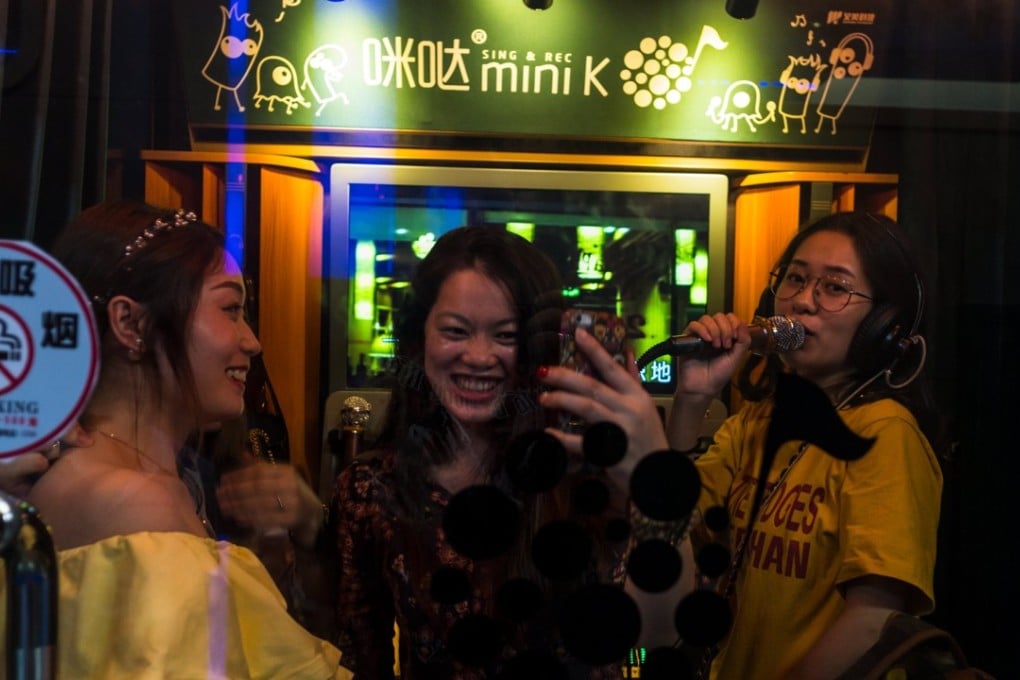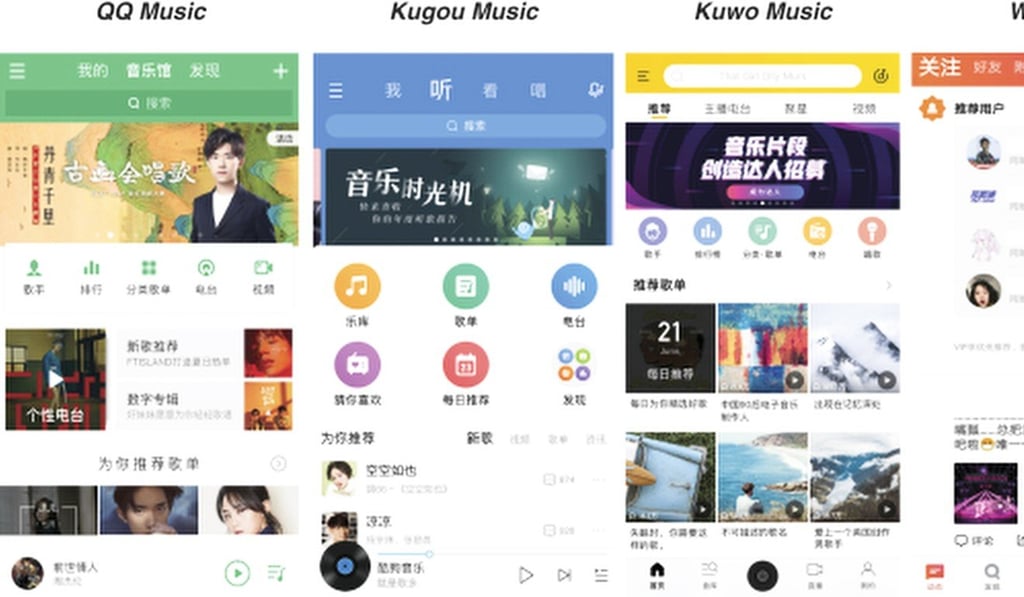Tencent Music IPO filing offers glimpse into world of Chinese online karaoke
Online karaoke, like social commerce and live-streaming, are being embraced in China as companies and internet users experiment with new formats to deliver entertainment and sell products and services.

There are even karaoke booths in shopping malls where users can pay by songs. Then there’s online karaoke.
WeSing is the most popular of the karaoke apps available in China. Little-known outside the country, it has more users than there are people in the US, Canada and Mexico and is operated by Tencent Music Entertainment Group, the music industry spin-off of China’s biggest social network operator.
Pimp my rickshaw: Indonesian karaoke goes mobile
There’s a heavy social networking aspect that makes the app so popular. With the app, users can turn their phones into virtual karaoke studios where they can sing their favourite songs to lyrics. Friends can share their “recordings” with each other. There’s a feed where one can see the “works” of friends or personalities one follows. Users can send virtual gifts, leave comments much like a Facebook post, and even challenge others to a sing-off.
One can even buy singing lessons through the app. Professional livestreamers have taken to singing for the virtual gifts, which they split with the platform.

Tencent Music filed for a US listing this week and was previously reported to be hoping to raise US$2 billion, which would put it in the top 10 biggest share sales in the world this year. WeSing is important for those thinking of investing in Tencent Music, which is popularly compared with Spotify, the world’s biggest music streaming service from Sweden.
“While (Tencent Music) hasn't made much headway in growing its subscription revenue and is relatively struggling on that front, versus its social entertainment services revenue, it has been able to exploit its local knowledge to make money via its karaoke and live streaming,” Sumeet Singh, a Singapore-based analyst from Aequitas Reseach, wrote in a research note. “It seems to be doing great on the social front.”
Online karaoke, like social commerce and live-streaming, is being embraced in China as companies and internet users experiment with new formats to deliver entertainment and sell products and services. China surpassed the 800-million mark in internet users for the first time, further cementing its position as home to the world’s biggest online community, as the country kept up its investment in infrastructure and pushed to lower access fees.